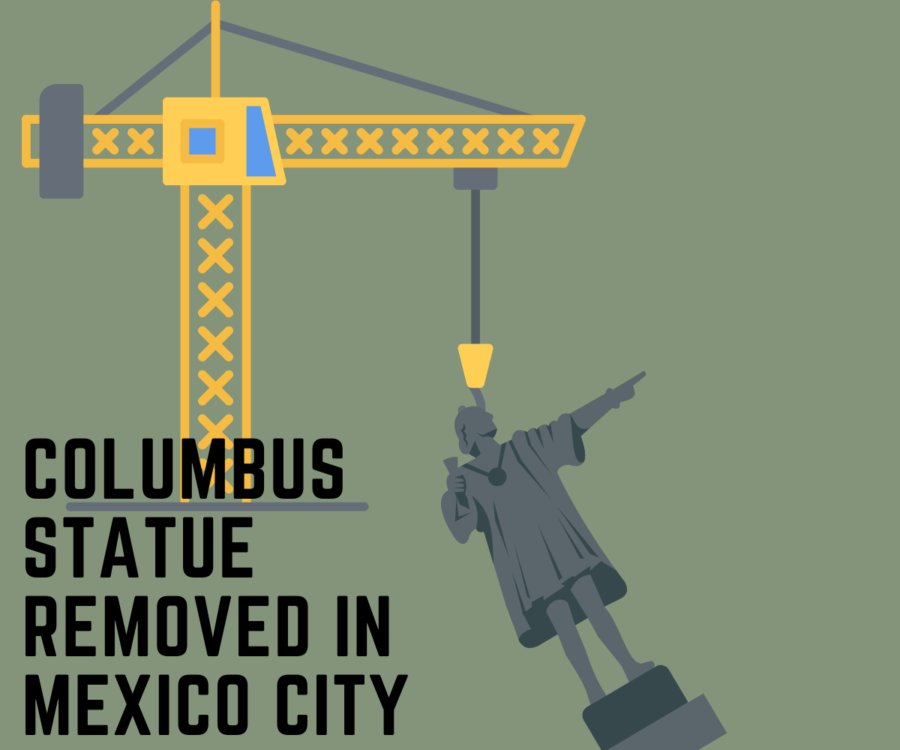Mexico City’s Columbus statue replaced with indigenous woman
Original Columbus statue implemented in the nineteenth century taken down by orders of New Mexico’s mayor Claudia Sheinbaum.
On Columbus Day/Indigenous Peoples Day, Oct. 11, a Christopher Columbus statue in Mexico City was taken down and replaced with an Indigenous woman statue.
Across the United States, many statues associated with the discovery of the Americas, especially that of Columbus, have been taken down around the country, many times by the force of citizens. There is even one on Bayshore in Tampa, Fla.
“At least 40 monuments to Columbus have been removed since 2018, according to a Washington Post and MIT analysis of crowdsourced data,” the Washington Post said.
The original Columbus statue that resided in Mexico City conveyed to many citizens the disputes over politics, especially race, history, and gender.
“After prolonged debate, Mayor Claudia Sheinbaum announced Tuesday that the Columbus statue that once gazed down on Mexico City’s main boulevard will be replaced with a pre-colonial Indigenous figure — notably, a woman,” The New York Times said.
Thousands of women earlier this year protested in Mexico City in order to promote and push for feminism. Violence soon became abundant when the president’s residence and colonial statues were attacked.
“Mr. López Obrador has minimized these protests, going so far as to call them an opposition ploy to destabilize his government,” The New York Times said. “Last month, he claimed the feminist movement in Mexico was only created after he took office in 2018.”
Sheinbaum is the first woman elected to lead one of North America’s largest cities to address the issues concerning cultural tensions and resistance to a male-dominated culture.
“In 2014 Sheinbaum broke from the traditional left-wing PRD to join López Obrador’s splinter movement, forerunner to the Morena party,” Mexico News Daily said. “Both were elected in the Morena sweep of the polls in 2018, when Sheinbaum became Mexico City’s first female mayor.”
Andrés Manuel López Obrador, Mexico’s current president, often denounces the history of colonialism to the extent of celebrating Indigenous culture and presenting himself as the defender of the poor against the country’s conservative opposition and mostly European-descended elite.
“In the US it is widely celebrated as Columbus Day. But in Mexico and other Latin American countries it is known as Día de la Raza (Spanish: Day of the Race),” BBC News said, “Many view it as a commemoration to native resistance against European conquest.”
On Oct. 10, during the International Day of the Indigenous Woman event, Mayor Sheinbaum said that the new statue would honor influential women in Mexican history.
“We owe it to them. We exist because of them,” Sheinbaum said. “It is the history of our country and our homeland.”

